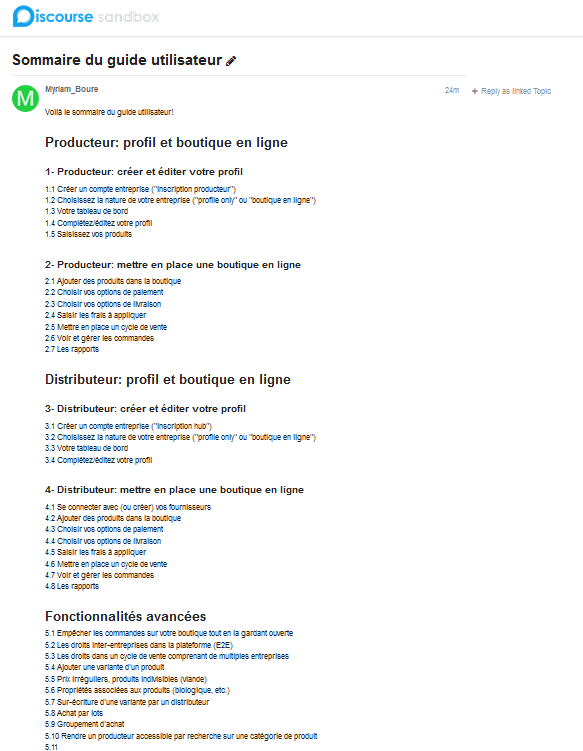Hi everyone,
Following the conversation: User Guide as a distinct project with its own worklfow
There are more and more language communities around OFN as new countries set up OFN instances. With that comes the necessity to translate the user guide, which is today on the openfoodnetwork.org website, and managed and updated by @sstead.
That’s a great tool and very usefull (thank you @sstead for the great job!), but we have seen that in France for example, with the first beta testers, we sent them to the user guide, and the tester wrote an email to the australian team because it was the email indicated in the user guide  And anyway, not so many potential users of the OFN in France will speak French, so we need to translate the user guide. Same for Norway.
And anyway, not so many potential users of the OFN in France will speak French, so we need to translate the user guide. Same for Norway.
With the translation may come also some adaptation of content, for example the way we manage VAT in Europe is different from the way we manage it in Australia. And maybe we will create one more page here or there because there is a topic that is not clear and has not yet been detailed in the Australian version.
So to kickstart the converstion: how can we manage that? So that we can collaborate on that and not each instance build its own user guide on his side… For example that would be great if Sally modifies something (because a new feature has been implemented for example) that the other language moderators are notified so that they can make the change in their language. And also that would be great to make it easier for the new instances joining to find a space where they can do the work, a bit like @maikel has done with Transifex, now any new comer can request a new language and start translating…
My first thought would be to have a wiki (because wikipedia seems to work a bit as we could work, you can create a page in one language, other people can translate (and adapt?) in other languages, and I guess when someone make a modification in one language I guess (?) it notifies the other contributors in other languages…
I saw it seems possible to create a family of wikis in Wikimedia (tool used by Wikipedia) and that could potentialy work.
I saw there is also a wordpress plugin that can be used to add a wiki to a wordpress site, Userpress… but it doesn’t seem to handle multilingual wikis…
What are your thoughts on that?
Ping @sstead @danielle @marito59 @Selmo @alvarosaco @NickWeir @nickwhite @CynthiaReynolds @sigmundpetersen
PS: if the Australian team doesn’t have time to investigate on that, I guess we might find volunteers to test different options 




 I like the Discourse user guide group, I think that can work like that.
I like the Discourse user guide group, I think that can work like that.